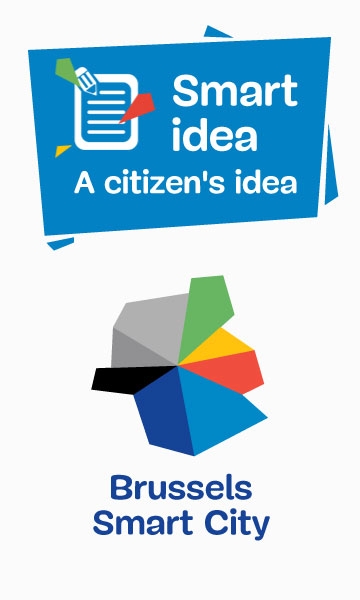Establishing mechanisms, tools and rules for a circular economy Brussels-wide to respond to issues related to: waste; the reduction of carbon emissions; the reduction of energy consumption; the development of less polluting products; simplification of the logistic flows and the establishment of a smart and dynamic business model which adapts to the stakeholders’ context, an idea suggested by Stéphane (Etterbeek)
Brussels is the capital of Europe and a real crossroads of European companies.
Europe is launching initiatives relating to the circular economy and is using Brussels as a laboratory to experiment with establishing a circular economy model which could be a good reference.
Cities are by definition the right ecosystem for carrying out this type of experiment because most of the actors are on the spot: from the end consumer, to the tertiary and secondary sector companies (which respectively represent 69% and 15% of GDP). Cities benefit from a well-developed and complex infrastructure used by these various actors. Cities are in motion 24 hours a day.
Networks
If it is impossible to demonstrate the feasibility of establishing the circular economy within a city, how can it be done at the scale of a whole country or Europe-wide?
It requires providing a collaborative environment that can be used by all the players intervening at the various stages of the process in support of the circular economy. From the creation of the product, ranging from the adaptation of the manufacturing processes, the logistics for transporting the raw materials and delivering the products, through to the consumption of products and their recycling, either to be destroyed to produce energy, reused/given a 2nd life or reused to manufacture new materials.
One of the goals of the circular economy is to achieve savings. This can be reflected in energy savings, a reduction in transport costs, carbon emissions, etc. But ultimately, these savings could offset the cost needed to set up this approach.
Innovation is needed to set up an effective financial mechanism which encourages progress to be made in moving towards this model. Financial motivation: the question of what Business model is needed is quite high on the agenda because establishing an economy of this kind implies an additional cost that will have to be distributed and absorbed depending on the selected mechanism. What concessions and obligations are acceptable? It will be necessary to strengthen the regulations to provide support for such an approach.
